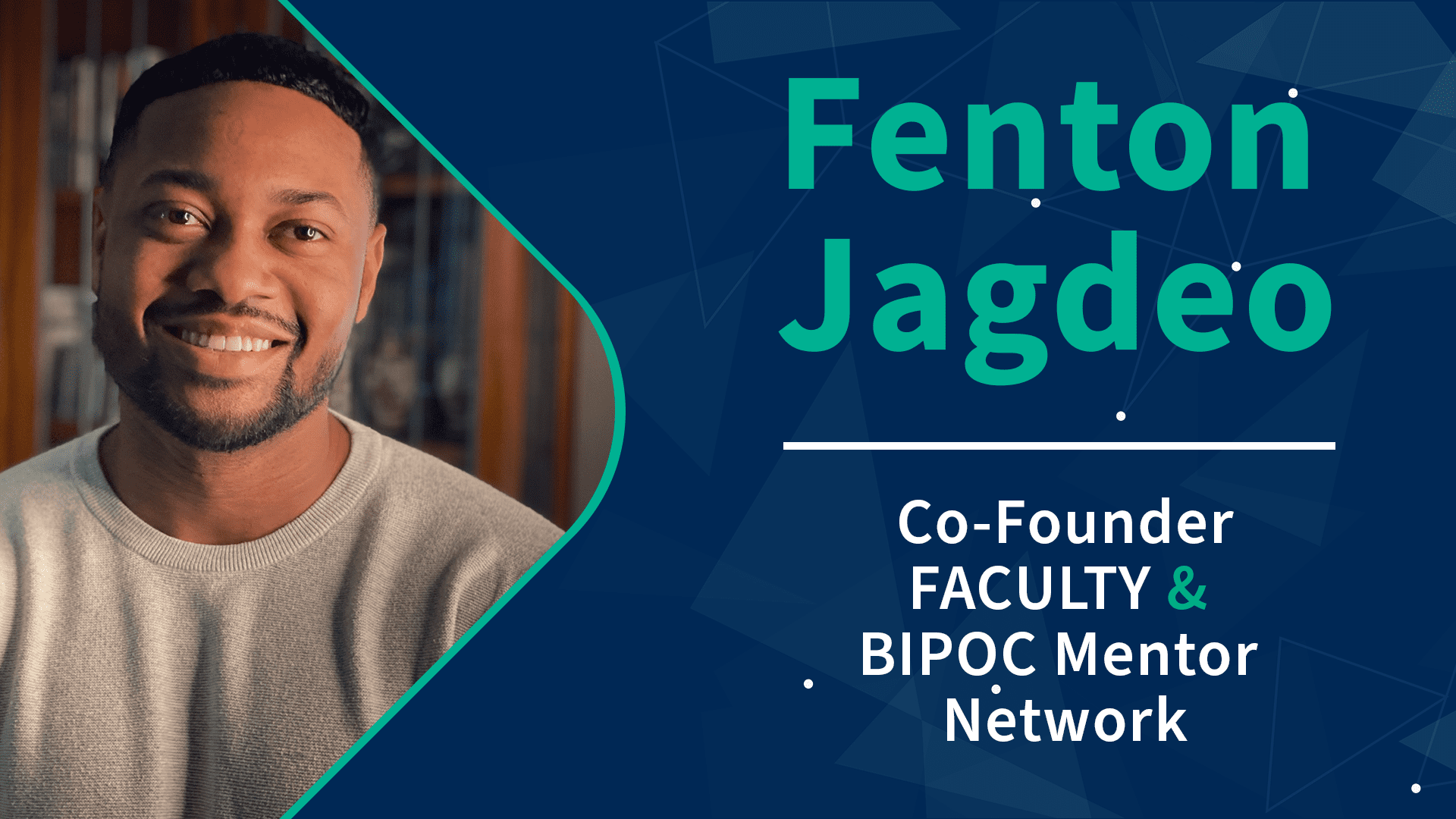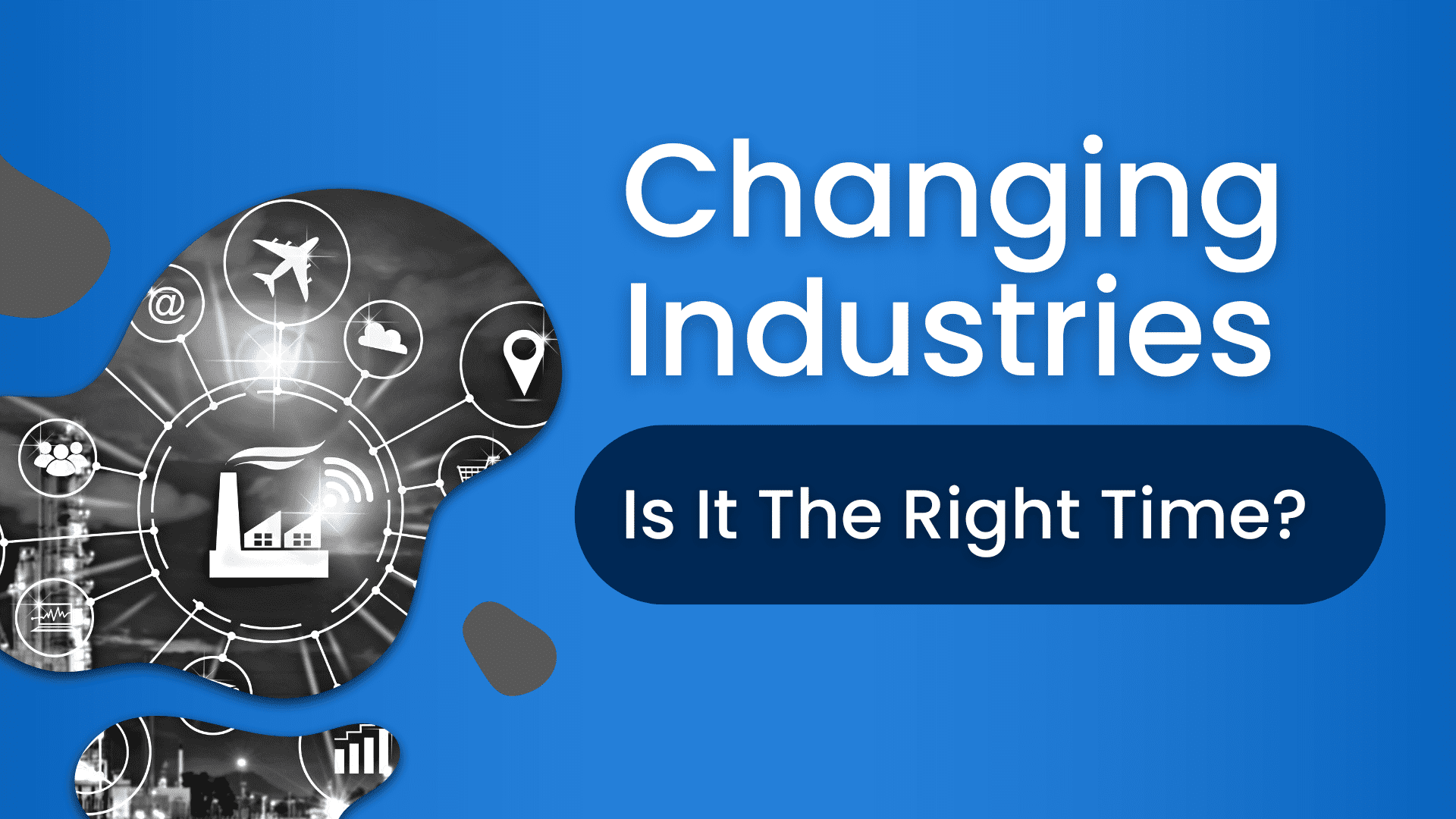An interview with Fenton Jagdeo, the Co-Founder of FACULTY, a venture capital-backed modern grooming company based in San FranciscoFenton Jagdeo is the Co-Founder and COO of FACULTY, a men’s grooming company profiled in the New York Times, Hypebeast and the Wall Street Journal. The company’s business model targets Gen Z with a young, fresh approach to identity, diversity, gender and core values. Jagdeo’s vision is altering the face of the cosmetics market and changing the way men view masculinity by staying close to street culture, and using a drop model that releases a limited supply of product, creating an obsessive customer base. The Richard Ivey School graduate worked at Deloitte and Freshii before diving into the entrepreneurial world to start FACULTY, but Jagdeo hasn’t stopped there. He recently became the youngest board member of the Toronto Transit Commission in its 100-year history, and he is the Co-Founder of BIPOC Mentor Network, a network driven to democratize opportunity for BIPOC & LGTBQ+ students.
Shane Gagnon of Clarity Recruitment spoke with Jagdeo about his drop business model, journey as an entrepreneur in the VC world, Kanye West, hype culture and why men are embracing wearing nail polish.Gagnon: How did your journey as an entrepreneur begin?
Jagdeo: I started out as an outsider, but I had this innate desire to learn, and my ability to execute on what I call radical curiosity. While working at Deloitte, I wanted to learn more about the world of start-ups. I started doing pro bono work for several start-ups in Toronto, high-level executive things like advising on strategy, helping them think through their financial statements, guiding them through marketing execution. I ended up advising this gentleman I met at an info session I was holding for prospective consultants. We bonded over Kanye West, hip hop, and shoes. He came to me with this idea of venturing into the world of men’s cosmetics. After a seven-hour conversation I convinced him to give this idea a go and, of course, given my experience and my background, I decided to advise and play a significant role within the organization.
Gagnon: Had you given serious thought to starting your own business or was it really a “right place at the right time” kind of moment?
Jagdeo: I was going to take a job at a pension fund. I was doing advisory work in Lebanon at the time for a hotelier and I got a call from my co-founder. He said, “Listen, I know you want to do this pension fund thing but it’s a horrible idea and here’s why. Fly to San Francisco. I want to talk to you about being my co-founder.” As a risk-averse person who decided to spend the majority of his time in risk-averse industries, I started to weigh the costs and benefits of doing it.
We’ve built a system in the western world where you go through elementary school, high school, then you’re told to go to university and get your first job. You end up on this linear conveyor belt where every single milestone has been pre-meditated. Something about that felt off, really Descartes-ian. I was always interested in breaking that stereotype. I didn’t know when, or how, and I didn’t necessarily know that entrepreneurship was going to be the right breaking point. When you triangulate all these other things — being at the right place at the right time, meeting the right person and being at a certain stage of my career and not having any obligations — it pointed me toward breaking that system through entrepreneurship.I started out as an outsider, but I had this innate desire to learn, and my ability to execute on what I call radical curiosity.Gagnon: Elon Musk tweeted recently that not everyone is cut out for this. What do you think about that?
Jagdeo: Elon Musk does a really good job at being relevant in the media. Most of that is true, but I think you can grow to be an entrepreneur. I don’t think it’s something seeded in your soul where if you need someone to help you along the way, then you shouldn’t be an entrepreneur. This is a very tough life and despite the fact that I have a co-founder, it does get lonely. Building decks for a bunch of executives at a large firm and walking them through a five-year strategy is nothing compared to ensuring you make payroll, negotiating your own vendor contracts, and knowing that every email could be your last. If you mess up a negotiation, it’s gone forever.
Passion and vision can’t be taught. But I do believe that asking for help and having a bit of humility about the things that don’t come innately to everyone —like building operations, thinking about your legal structure, talking about capitalization tables — is okay. This stuff isn’t natural; not many people know how to do it. I don’t expect Musk to be into the details because it’s not his job. His job is vision and I hope to get to a place where I can be a visionary, too, but at the moment I’m the vision, HR, legal, finance, operations and sometimes, even a therapist. When you’re managing a high-growth company, all of those different roles need to be accounted for.
Gagnon: What traits do you think you need in order to succeed?
Jagdeo: I think the first thing is your storytelling ability — a major key when it comes to building your business. As a leader, your job is to tell the story of your business, to inspire your ecosystem of vendors, your legal team, your VCs and everybody who has a hand in helping your business. Part of bringing people on the journey, that at times, can become chaotic, is about inspiration and showing your passion in a way that allows people to grasp it and to follow you. Apply it to the world of start-ups. Your idea is not necessarily going to be novel — it’s probably been done before, and in the case of men’s cosmetics, it has been. But has it been done successfully in a way that compels people to purchase your product? My job is figuring out how you tell that compelling story.
The second thing is this relentless desire to execute. I have an innate desire, an almost obsessive desire, to execute. My first job out of school was working for a fast casual restaurant chain called Freshii. I worked with the founder and CEO very closely on some incredible strategic initiatives and one of the things that he always said was, “Talk is cheap. Execution sets us apart.” So you can talk about all your ideas and that’s great, but sometimes your job is just executing, getting up when you feel tired and doing what needs to happen for your business. Take this from someone who’s spent all of his life in strategy — if you don’t get things done quickly enough, your competitors swoop in and do it faster than you. Time kills deals.
The third element of success comes from embracing failure. When you’re managing a high-growth company for the first time there is so much failure. I take an “L” virtually every 12 hours. To the public, everything looks amazing, right? We have all this amazing press with the biggest news outlets in the entire world, we’ve sold out of our products, we’ve been successful in raising additional capital to keep our company alive, but I take “L’s” every 12 hours. I think embracing failure — not as a depressive element in your life but as an opportunity to learn, to get back up and to practice better the next time — is going to be incredibly important to your own resiliency.
Gagnon: In your entrepreneurial journey so far, what’s made you happiest?
Jagdeo: I’ll be honest, I was happiest when we sold out of our product. That affirmed three things for me. The first thing was that dudes are actually interested in cosmetics. We’re talking dudes who look like me, who’ve grown up in African-American households where traditional masculinity was such an important element of what made you a man. It proves there’s a market. The second reason: I was able to prove that failure is a learning tool, because we pivoted many times to get there. The third thing is that it allowed me to keep the company alive for another two months. Overall, I’m rarely ever happy. There’s always going to be a bigger milestone. For me, it’s how do these small wins help continue to drive the mission forward?As a leader, your job is to tell the story of your business, to inspire your ecosystem of vendors, your legal team, your VCs and everybody who has a hand in helping your business.Gagnon: How is FACULTY capitalizing on the changing face of masculinity?
Jagdeo: The first wave of masculinity was about the show of dominance and machismo. Think Arnold Schwarzenegger working out in the gym, a man as the breadwinner. The second wave of masculinity was this idea that we should reject that nature. Men started revolting against this traditional ideology. Now we’re in a third wave. You define masculinity as a definition of your self-expression. Masculinity could mean machismo or winning and competitiveness. But masculinity can also be tender and soft and emotional —it can be something that hasn’t been defined as masculinity before. When we think about today’s audience, we’re starting to realize they are concerned less with Victorian-era traits and more concerned with how you self-identify and how you self-express.
I’m a millennial. Guess what? No one cares about us anymore. The world of consumer spending is ignoring us. Gen Z is a completely different audience and here’s some high-level stats: Gen Z owns about 40% of the buying power in the United States. For context, that’s about 140 billion dollars. That means they’re influencing me, influencing you and they’re influencing your grandparents. Companies have started to move towards targeting Gen Z for that reason, because they’re going to rule the world. Companies have started to realize that Gen Z is a consumer that’s more interested in being themselves rather than what they can or cannot wear. That idea of gendered consumption is becoming a bit of a myth.
This new generation with so much buying power is less concerned about being gendered and more concerned about doing what makes them feel good. Tie that to a bunch of general stats within the world of men and you realize guys do care about the way they look. Some of the biggest names right now — ASAP Rocky, ASAP Ferg, Snoop Dogg — are doing things seen as effeminate. Which means the cultural leaders who are influencing this new generation are pushing this forward. So the reason why FACULTY exists is to champion this new way of thinking. We spoke to 1000 men over the last two years and 90% of them said that if a solution existed, they would use it. The problem is that men don’t want to walk into Sephora or use products that are traditionally seen as “girly.” A company like FACULTY comes along to help break that stereotype and make you feel like we’re not a makeup company but here to help enable your self-expression.
Gagnon: Does your choice to pursue the drop business model, which is inherently limited and exclusive, align with individuality? Was that a conscious choice from a business perspective?
Jagdeo: Though we are a cosmetics company, we take the majority of our cues from the world of hype culture. One of the foundations of hype culture is having this drop model. The drop model is personified by the brick SUPREME sold — there’s literally a brick with the SUPREME logo on it and only 100 exist and you’re going to line up so you can buy it. Supply and demand increases the value of that brick. Guys love the drop model and by turning this into a cool exclusive thing to do, it allows us to build a community of people who are interested in what we’re doing next. The drop model also allows us to test products. If someone doesn’t like orange polish, great, we haven’t spent tens of thousands of dollars on 6000 units — we only spent it on a little bit, so if we take an “L” on that, it’s not as big of a deal.When you’re managing a high-growth company for the first time there is so much failure. I take an “L” virtually every 12 hours.Gagnon: What’s your take on fundraising with Venture Capitalists (VCs)?
Jagdeo: Fundraising is not for everyone. Fundraising is designed to drive massive growth within your business. If you are interested in working with VCs, understand that your relationship with a venture capitalist is going to be like living in your parents’ house. When you’re living with your parents as an adult, they’re not going to tell you what to do — they respect your boundaries. They know you’re smart enough to make your own individual decisions. But guess what? They’re still your parents, which means they’re going to try to give you advice. Sometimes it goes well, sometimes it doesn’t. Your parents always have the best interest for you — working with VCs is kind of the same thing. VCs are incredibly helpful because they have a network, resources and the ability to propel your company to places that you on your own could never do. But sometimes they may not be in the weeds of your operation. They may not see what you see — but that’s where these incredible conversations happen, because that difference of opinion really does drive some incredible decision-making. I love working with VCs because they have the ability to change my mind, uncover novel insights and provide guidance. One thing I suggest to any high-growth founder is to think about who you get into bed with. Just because someone wants to offer you a million dollars doesn’t mean that they’re the right VC for you. Fenton Jagdeo is the Co-Founder of FACULTY, a venture capital-backed modern grooming company based in San Francisco. Prior to Faculty, Fenton spent time at a global management consultancy, with a focus on business strategy and innovation. An Ivey graduate, he is the youngest member of the board for the Toronto Transit Commission and the Co-Founder of BIPOC Mentor Network, a better people network driven to democratize opportunity for BIPOC & LGTBQ+ students.
Shane Gagnon is one of Canada’s most trusted recruitment experts for early-stage technology companies. He is a designated CPHR professional based in Vancouver, B.C.




